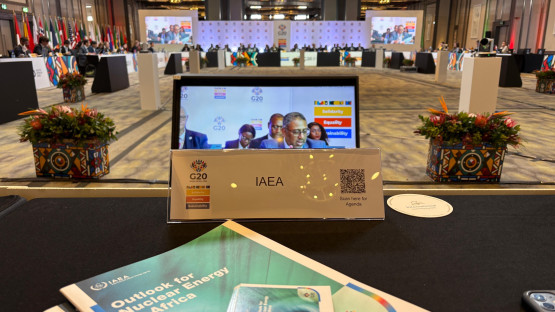The G20 meeting in Johannesburg presents a rare opening for African nations to press their collective interests as the global trading landscape becomes increasingly unsettled. With world leaders, business figures and trade negotiators gathered in one place, the summit creates a moment for the continent to push for fairer trade rules, firmer market access and policies that protect African exporters from rising protectionism.
South Africa’s presidency of the G20 in 2025 carries both symbolic weight and strategic opportunity. Observers say it gives African governments a platform to place issues such as industrial transformation, value addition and equitable market access at the centre of international economic discussions. The timing matters: many African economies are anxious about a recent spike in protectionist measures, the future of preferential trade arrangements and the fragile policy environment in major markets.
The potential expiry and uncertainty around longstanding preferences have deep consequences. Measures taken this year — including reciprocal tariffs imposed by the United States on several African exports — have already hit sectors such as South African automobiles, wine and citrus. Other industries across the continent, from Ghanaian cocoa processors to Ethiopian leather and Kenya’s textile and macadamia sectors, have faced similar pressures. Analysts warn that duty hikes of 10 to 50 percent threaten jobs, shrink rural incomes and can quickly unravel carefully built supply chains.
Voices from the private sector describe the impact as abrupt and demoralising. Exporters who invested in compliance, quality control and market relationships say sudden tariff changes erode the competitiveness they worked to establish. Governments, for their part, stress continued engagement with trading partners to protect and expand ties. Officials in Kenya and South Africa report constructive talks with US counterparts and hold cautious hope for renewed agreements that could stabilise access to key markets.
Beyond bilateral negotiations, experts urge African leaders to use the G20 to press for predictable, rules‑based trade arrangements that are insulated from shifting politics in wealthy countries. They argue that unilateral tariff actions undermine long-term planning and that stronger mechanisms are needed to promote fair competition. At the same time, advancing intra‑African trade through the African Continental Free Trade Area is presented as a vital buffer: by deepening regional markets and promoting value addition, countries can lessen their vulnerability to external shocks and diversify export pathways.
Analysts emphasise that influence at the summit will count only if African leaders coordinate positions and sustain pressure after the two‑day meeting concludes. The G20 offers the spotlight and a negotiating table; converting that visibility into durable policy wins will require unity, a clear agenda on industrial transformation and follow-through that secures stable, market‑friendly rules for exporters across the continent.



